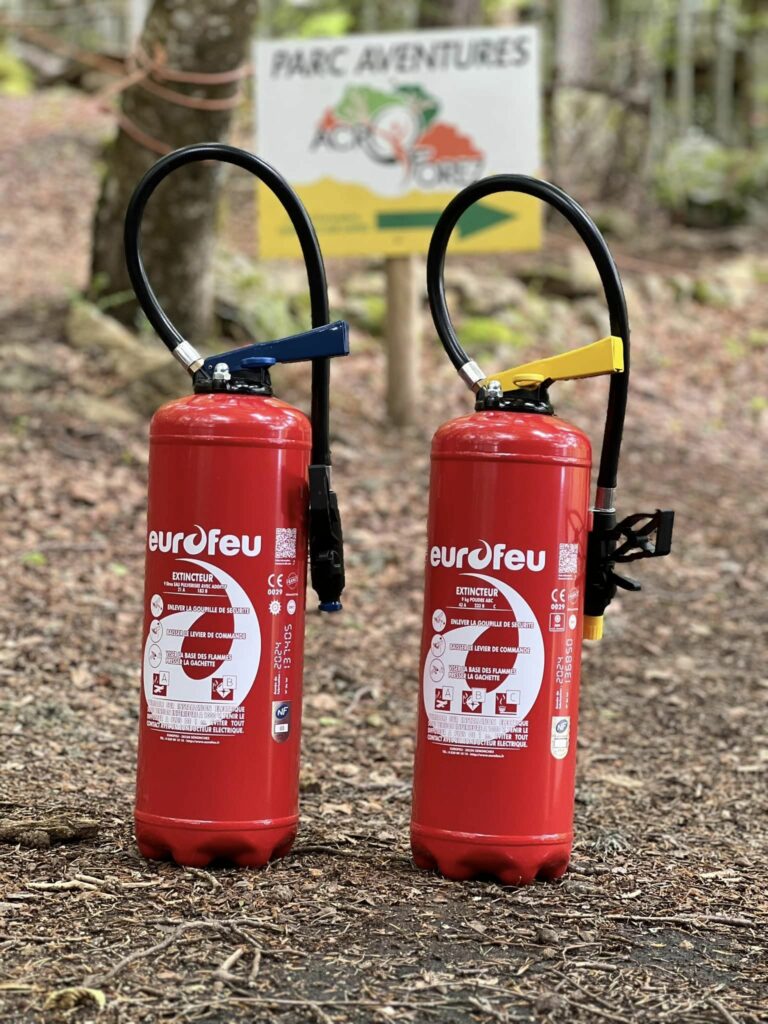Which extinguisher for an oil fire?
An oil fire can describe several situations. An industrial oil or motor oil fire is typically considered a Class B fire. It can therefore be extinguished with a Class AB water spray extinguisher with additive, but also with an ABC multi-purpose powder or a Class B CO2 extinguisher.
To extinguish a fire involving animal or vegetable oil or grease, often cooking oils found in professional or home kitchens, we recommend using an extinguisher capable of fighting Class F fires.
Foam extinguisher
- Fire Class: Effective for Class B fires (flammable liquids such as oil, petrol, grease).
- Action: Foam forms a film on the surface of flammable liquid, smothering flames by preventing oxygen from reaching the source of combustion.
- Advantages: Less collateral damage after use than powder extinguishers.
Powder extinguisher
- Fire Class: Versatile, capable of extinguishing Class A (solid materials), Class B (flammable liquids) and Class C (flammable gases) fires.
- Action: Chemical powder acts by interrupting the combustion reaction.
- Benefits: Effective for quickly extinguishing intense flames on oil or grease fires.
Important tips :
- Use: Keep the extinguisher at a safe distance to avoid any risk of flashback.
- Safety: Always switch off the heat supply before using the extinguisher to prevent re-ignition.
- Evacuation: In the event of a large fire or dense smoke, evacuate immediately and contact the emergency services.
Eurofeu fire extinguisher with ecological additive
Eurofeu has developed a range of fire extinguishers with ecological additives.
Having a foam or powder extinguisher suitable for fires involving flammable liquids such as oil or grease is essential to ensure a rapid and effective response in the event of a fire in the kitchen, garage or any other environment where these hazards are present. Make sure your extinguisher is regularly inspected and in good working order for maximum effectiveness in an emergency.



